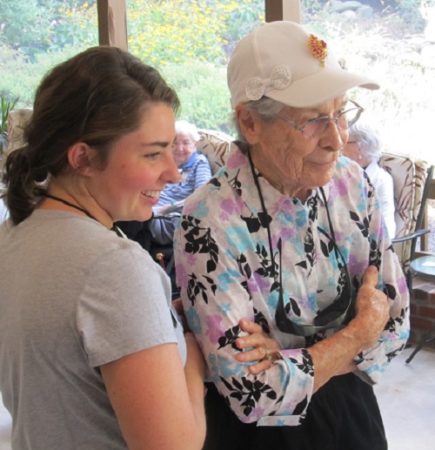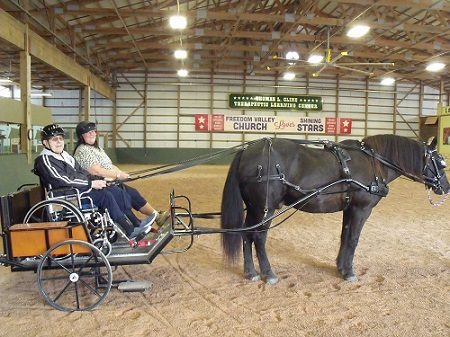Four Ways Adult Caregivers Can Take Care of Themselves, Too
Guest article by Jennifer Landis
 Few people outside of the healthcare industry say they want to grow up and become a caregiver. It isn’t an option on the SATs or a career recommended by a guidance counselor. Yet most caregivers serve out of love and respect.
Few people outside of the healthcare industry say they want to grow up and become a caregiver. It isn’t an option on the SATs or a career recommended by a guidance counselor. Yet most caregivers serve out of love and respect.
Few realize just how stressful caregiving is over time.
Caregivers must care for themselves, too.
Here are four tips for caregiver self-care.
Remember Your Physical Health
If you have tripped over your superhero cape more than once, there are some options that will help make things easier for you and your care recipient. Eat regularly, exercise, get enough sleep and schedule regular doctor’s visits. Setting aside just 15 minutes a day for yourself can be the start of a healthier, less stressful life.
Consider Adult Day Services
Day care isn’t just for children. Taking your loved one to adult day services will benefit both of you. Whether it is part of a full-time or assisted-living care facility, a church organization or an organization sponsored by your local Council on Aging or the National Institute of Senior Centers, adult day services offer more than watching your loved one for a few hours a day. They offer activities, exercise and friendships with similar folks.
Communicate Openly
Raising a white flag when you start to feel overwhelmed is not a sign of weakness. In fact, it can be a sign of strength and knowing your own limitations. Communicating your feelings with your doctor may provide you with options for assistance that you may not have been aware of before. Communicate your needs to other family members. Consider sharing some of the care responsibilities. Not only will this reduce your stress but it will give other family members the opportunity to serve and get to know their elder better.
 Reduce Your Stress
Reduce Your Stress
The roles weren’t always reversed in your relationship with your loved one. Chances are there were times in your life when you both were more carefree. It might be beneficial for you and your family to revisit those places that once brought you joy and laughter and make some new memories.
You might bring in a home care nurse one day a week to allow for some time to shop, or just relax in a warm bath. It’s also important to note that caregivers can be prone to overindulging in food or alcohol to relieve stress, which are not healthy options. If you have noticed a tendency to “self-medicate,” talk with your doctor about healthier options.
Caregiver Self-Care is Important
Remembering to make yourself a priority from time to time is not selfish. It may be the most unselfish thing you can do for your family. When you become over-tired, it becomes harder for you to care for others. That can lead to increased depression, a short fuse, and behaviors that can harm you and your loved one. Doing the things that will keep you healthy and happy will keep your family, loved one, and employer happy too.
If necessary, schedule time in your day for a cup of coffee or tea and the next chapter of a favorite book. Get out to see a movie in the theater, or take a walk through a park. Stop at your local animal shelter and volunteer to walk a dog or just sit and cuddle some kittens.
Remembering to take care of yourself is the best thing you can do to take care of others.

Jennifer Landis is a writer, blogger, foodie, yogi, runner, self-care advocate and, most importantly, a mama. She loves dark chocolate and drinking tea. She writes, “I’ve recently started writing more about my family and our experiences caring for our aging grandparents. You can learn more about Jennifer at her blog, Mindfulness Mama, or on Twitter @JenniferELandis.









Practical tips and a timely reminder for me. Physical health for oneself is often the last thing we think about. That caught up to me last week, so I truly appreciate this post!
Eric, as you know, we drive in deep to get done what needs doing.
Next thing, we wonder what happened? Why do I feel so exhausted?
Be careful that you don’t drive yourself so hard you do what I did and wonder if I’m showing signs of Caregiver Dementia. (It’s not the worst thing in the world, because it’s reversible.) 🙂